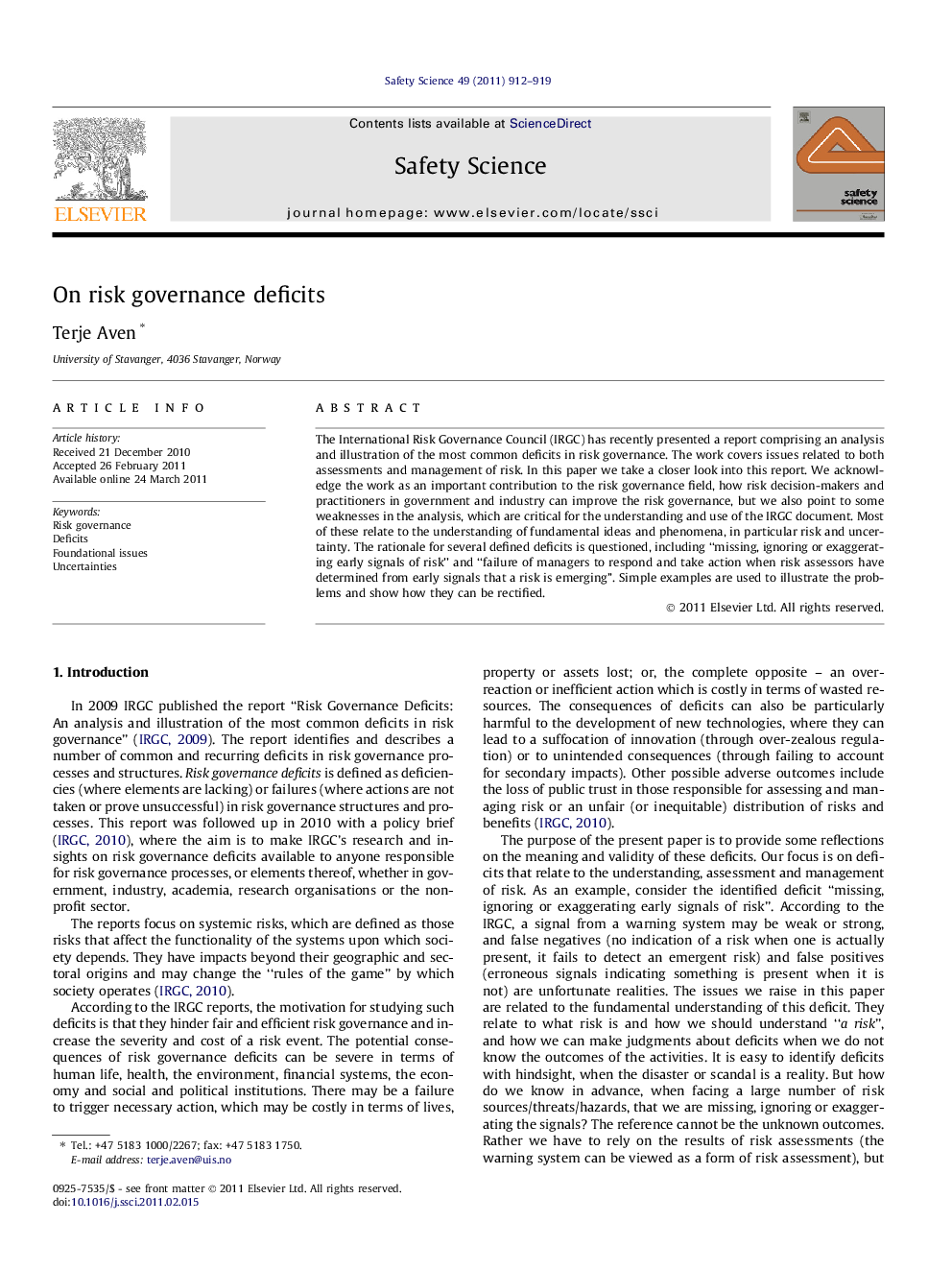| Article ID | Journal | Published Year | Pages | File Type |
|---|---|---|---|---|
| 589426 | Safety Science | 2011 | 8 Pages |
The International Risk Governance Council (IRGC) has recently presented a report comprising an analysis and illustration of the most common deficits in risk governance. The work covers issues related to both assessments and management of risk. In this paper we take a closer look into this report. We acknowledge the work as an important contribution to the risk governance field, how risk decision-makers and practitioners in government and industry can improve the risk governance, but we also point to some weaknesses in the analysis, which are critical for the understanding and use of the IRGC document. Most of these relate to the understanding of fundamental ideas and phenomena, in particular risk and uncertainty. The rationale for several defined deficits is questioned, including “missing, ignoring or exaggerating early signals of risk” and “failure of managers to respond and take action when risk assessors have determined from early signals that a risk is emerging”. Simple examples are used to illustrate the problems and show how they can be rectified.
► A critical review and discussion of IRGC ’ analysis of common deficits in risk governance is provided. ► The paper provides some reflections on the meaning and validity of these deficits. ► Weaknesses in the IRGC analysis are identified and suggestions for how to solve these presented. ► These weaknesses are related to inter alia the understanding of risk and uncertainties.
